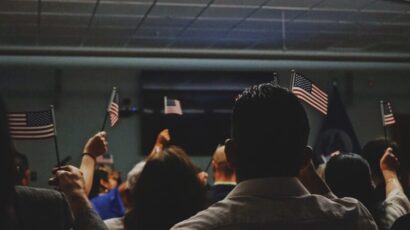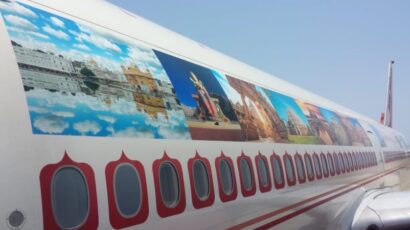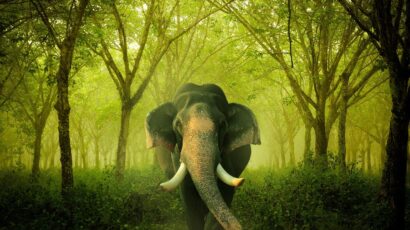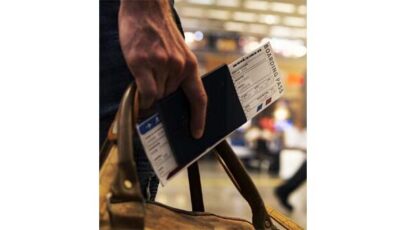Qualified students and many others exempted from US travel restrictions on India
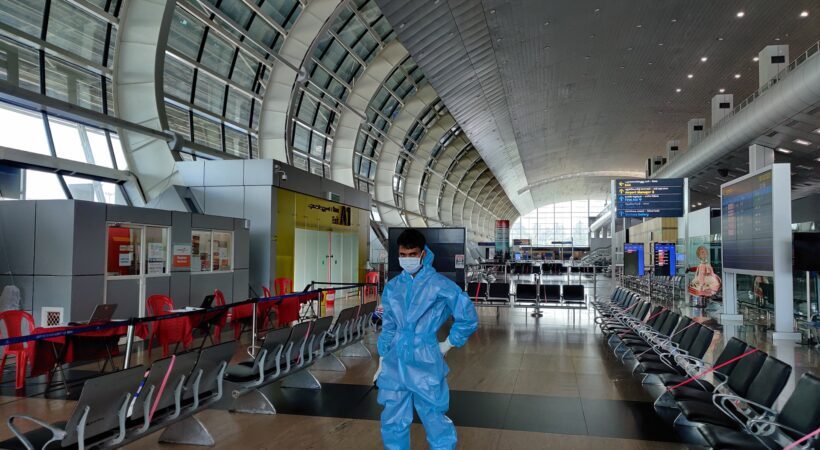
Indian students seeking to commence studies in US schools, colleges, and universities in fall 2021 may qualify for a National Interest Exception (NIE) to avoid the travel restrictions imposed by the Biden administration due to the alarming second surge of Covid-19, the US State Department said on Friday, the Times of India reported.
According to the report, certain academics, journalists, and individuals who provide critical infrastructure support in the US may also be eligible for the exception, the State Department said hours after the White House rolled out a travel ban citing “extraordinarily high” case loads and multiple Covid-19 variants circulating in India. On Friday, the subcontinent tallied over 400,000 cases, the highest single-day infections recorded in any country to date.
“After reviewing the public health situation within the Republic of India, CDC has concluded that proactive measures are required to protect the Nation’s public health from travelers entering the United States from that jurisdiction,” US president Joe Biden said in a proclamation on the India ban. The CDC advise that variants found in India, UK, and South Africa have “characteristics of concern which may make them more easily transmitted and have the potential for reduced protection afforded by some vaccines,” Biden added.
The State Department, which already has similar travel exceptions for Brazil, China, Iran, and South Africa, said India too would be subjected to the same in keeping with the US commitment to facilitate legitimate travel. It, however, warned that the pandemic continues to limit the number of visas US embassies and consulates abroad are able to process.
The notification said that students who already have valid F-1 and M-1 visas intending to begin or continue an academic program commencing August 1, 2021 or later may enter the US no earlier than 30 days before the start of their academic studies. Such students do not need to contact an embassy or consulate to seek an individual NIE to travel.
However, it advised students seeking to apply for new F-1 or M-1 visas to check the status of visa services at the nearest embassy or consulate. Those applicants who are found to be otherwise qualified for an F-1 or M-1 visa will automatically be considered for an NIE to travel, it added.
The State Department also said it would continue to grant NIEs for qualified travelers seeking to enter US for purposes related to humanitarian travel, public health response, and national security.
In the presidential proclamation announcing the travel restrictions issued earlier, the White House, too, made several exceptions, including for permanent residents (green card holders), noncitizen who is the spouse of a US citizen or lawful permanent resident/green card holder, any noncitizen who is the parent or legal guardian of a US citizen or lawful permanent resident provided that the US citizen or lawful permanent resident is unmarried and under the age of 21, any noncitizen who is the sibling of a US citizen or lawful permanent resident provided that both are unmarried and under the age of 21, any noncitizen who is the child, foster child, or ward of a US citizen or lawful permanent resident, or who is a prospective adoptee seeking to enter the US.
The ban also does not apply to government officials and air and sea crew traveling on work. The restrictions, expected to be temporary till the pandemic is under control, will mostly affect India’s large white collar work force on H1B guest visas and business travelers.
The notification said that students who already have valid F-1 and M-1 visas intending to begin or continue an academic program commencing August 1, 2021 or later may enter the US no earlier than 30 days before the start of their academic studies. Such students do not need to contact an embassy or consulate to seek an individual NIE to travel.
However, it advised students seeking to apply for new F-1 or M-1 visas to check the status of visa services at the nearest embassy or consulate. Those applicants who are found to be otherwise qualified for an F-1 or M-1 visa will automatically be considered for an NIE to travel, it added.
The State Department further said it would continue to grant NIEs for qualified travelers seeking to enter US for purposes related to humanitarian travel, public health response, and national security.
In the presidential proclamation announcing the travel restrictions issued earlier, the White House, too, made several exceptions, including for permanent residents (green card holders), noncitizen who is the spouse of a US citizen or lawful permanent resident/green card holder, any noncitizen who is the parent or legal guardian of a US citizen or lawful permanent resident provided that the US citizen or lawful permanent resident is unmarried and under the age of 21, any noncitizen who is the sibling of a US citizen or lawful permanent resident provided that both are unmarried and under the age of 21, any noncitizen who is the child, foster child, or ward of a US citizen or lawful permanent resident, or who is a prospective adoptee seeking to enter the US.
The ban also does not apply to government officials and air and sea crew traveling on work. The restrictions, expected to be temporary till the pandemic is under control, will mostly affect India’s large white collar work force on H1B guest visas and business travelers, the Times of India reported.





